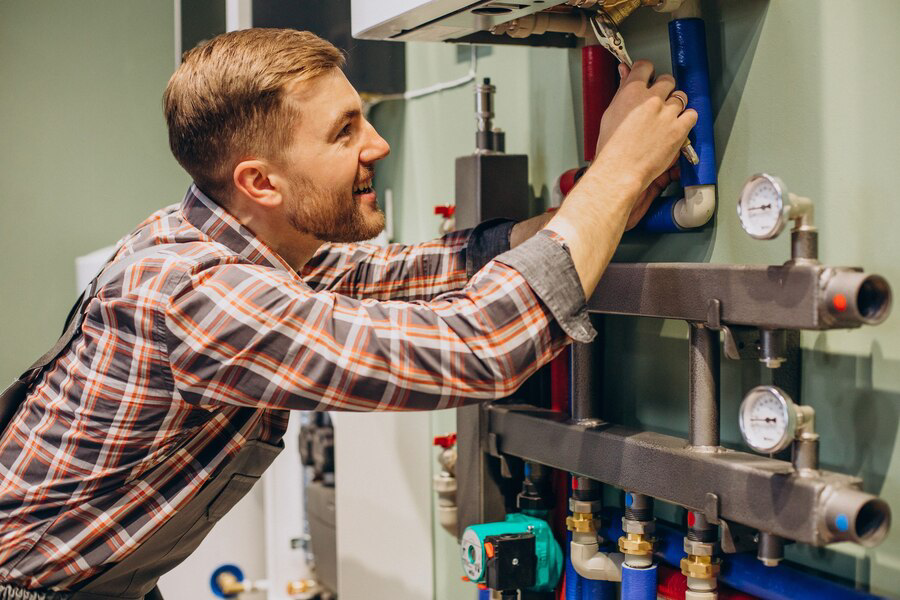A reliable hot water system is something most of us take for granted—until it breaks down. Imagine stepping into the shower only to be greeted by a chilling blast of cold water. It’s a sudden jolt that reminds us just how crucial our hot water systems are. Understanding the repair needs of your hot water system can save you from inconvenient breakdowns and costly emergency repairs. This blog will walk you through the essential aspects of maintaining, diagnosing, and repairing your hot water system, with practical tips and insights to help you keep things running smoothly.
Understanding Your Hot Water System
Before diving into repair needs, it’s important to understand what a hot water system is and how it works. Hot water systems come in various types, including:

Storage Tank Systems
Storage tank systems are designed to hold a substantial amount of hot water in a tank, ensuring a ready supply whenever needed. They are available in conventional models, which are typically less expensive but less efficient, and high-efficiency models, which use advanced technology to reduce energy consumption and operating costs.
Tankless Systems
Tankless systems, also known as on-demand or instantaneous water heaters, heat water directly as it flows through the unit. This eliminates the need for a storage tank, providing continuous hot water and reducing energy waste. They are often more energy-efficient because they only heat water when needed, saving on utility bills.
Heat Pump Systems
Heat pump systems work by using electricity to transfer heat from the air or ground into the water, rather than generating heat directly. This method is highly energy-efficient, as it moves heat instead of creating it from scratch. However, the initial cost of installation is higher, and they perform best in moderate climates.
Common Issues and Troubleshooting
Hot water systems, like any other appliance, are prone to issues. Here are some common problems and how to troubleshoot them:
No Hot Water
If you’re not getting any hot water, it could be due to a faulty heating element, a tripped circuit breaker, or a malfunctioning thermostat. Check the breaker first; if it’s tripped, reset it. If the problem persists, inspect the heating element and thermostat.
Inconsistent Water Temperature
Fluctuating temperatures might indicate a problem with the thermostat or heating element. For tankless systems, it could be a sign of a mineral build-up that’s affecting performance.
Strange Noises
Banging or rumbling noises often signal sediment build-up in the tank. Flushing the tank can usually resolve this issue. If the noise persists, it might be a sign of a more serious problem, such as a failing heating element.
Discolored Water
Rusty or discolored water often indicates that the tank is corroding. This is usually a sign that the anode rod, which protects the tank from corrosion, needs to be replaced.
Regular Maintenance Tips
Proper maintenance can prevent many common issues and extend the lifespan of your hot water system. Here are some tips:
- Flush the Tank: Sediment build-up can reduce efficiency and cause damage. Flushing your tank every 6-12 months helps remove sediment and keep your system running smoothly.
- Inspect the Anode Rod: The anode rod prevents tank corrosion. Check it annually and replace it if it’s significantly corroded or worn out.
- Check the Temperature Setting: Set your thermostat to 120°F (49°C) for optimal performance and safety. Higher temperatures can increase the risk of scalding and energy consumption.
- Look for Leaks: Regularly inspect the area around your hot water tank for leaks. A small leak can quickly turn into a big problem if left unaddressed.
When to Call a Professional
While some hot water system issues can be resolved with DIY repairs, certain problems require the expertise of a professional. Persistent issues that continue despite your best troubleshooting efforts should prompt you to seek professional assistance. For example, if your system remains unresponsive after checking common problems like circuit breakers or thermostat settings, a professional can diagnose and address underlying issues effectively.
Complex repairs, such as replacing a heating element or thermostat, are best handled by a professional due to their technical nature. Additionally, emergency situations like significant leaks or complete system failures demand immediate professional intervention to prevent extensive water damage and ensure the system is repaired correctly and safely.
The Cost of Repairs
Understanding the cost of repairs helps you plan and budget effectively. Repair costs can fluctuate based on factors such as the type of repair, your location, and the professional you hire. For example, replacing components like the heating element or thermostat typically involves different pricing, while services such as tank flushing or anode rod replacement also vary.
These costs are general estimates and can differ based on specific circumstances. To ensure you get the best value, it’s wise to obtain multiple quotes before proceeding with any repairs. This approach not only helps you manage expenses but also guarantees that you’re getting a fair and competitive price for the work needed.
Upgrading Your System
Upgrading your hot water system can be a more cost-effective solution than repeatedly repairing an aging unit. If your system is over 10-15 years old or frequently needs repairs, investing in a new model may offer better value. Modern systems are designed with advanced technology and higher energy efficiency, which can significantly reduce your utility bills and provide more reliable performance.
Newer models often feature improvements like smart thermostats that allow for precise temperature control and more efficient heating elements that enhance overall convenience. By upgrading, you not only benefit from reduced energy consumption but also enjoy the latest advancements in hot water technology, making daily use more efficient and pleasant.
Tips for Choosing a New Hot Water System
If you decide to upgrade, choosing the right hot water system is crucial. Here are some factors to consider:
- Size and Capacity: Ensure the new system meets your household’s hot water needs. A professional can help you determine the appropriate size.
- Energy Source: Decide between electric, gas, or solar-powered systems based on your preferences and available resources.
- Budget: Consider both the initial cost and long-term savings. While a higher upfront cost might be a deterrent, energy-efficient models can save you money over time.
- Warranty and Support: Look for systems with a good warranty and reliable customer support. This can provide peace of mind and protection against potential issues.
DIY vs. Professional Repairs
Deciding whether to tackle repairs yourself or hire a professional depends on your skill level and the complexity of the issue. Here’s a quick guide:
DIY Repairs
Simple tasks like flushing the tank or replacing the anode rod are manageable for most homeowners with basic tools and clear instructions. These routine maintenance tasks can help keep your hot water system running smoothly and extend its lifespan.
Professional Repairs
For more complex issues, such as replacing the heating element or addressing significant leaks, it’s wise to call a professional. Professionals possess the necessary expertise and specialized equipment to perform repairs accurately and safely, ensuring your system functions properly and avoids further complications.
Preventative Measures
Preventing issues before they arise can save both time and money. One effective measure is scheduling annual inspections with a professional. Regular inspections allow you to identify and address potential issues early, preventing minor problems from escalating into major repairs.
Additionally, being mindful of your hot water usage helps prevent overloading your system, reducing wear and tear and extending its lifespan. If you have hard water, installing a water softener can be beneficial. A water softener reduces sediment build-up, which can improve the efficiency of your system and reduce maintenance needs. Implementing these preventative measures ensures your hot water system operates efficiently and reliably for years to come.
Conclusion
Understanding the repair needs of your hot water system is crucial for maintaining efficiency and preventing costly breakdowns. Regular maintenance, such as flushing the tank and inspecting components, can help identify issues early and extend the lifespan of the system. For complex repairs or persistent problems, it’s essential to call a professional to ensure safe and effective solutions. For expert assistance or advice on your hot water system, contact EZI Plumbing at 0448467788. Based in Valley Bay, AU, EZI Plumbing provides reliable, high-quality service to keep hot water systems running smoothly.

